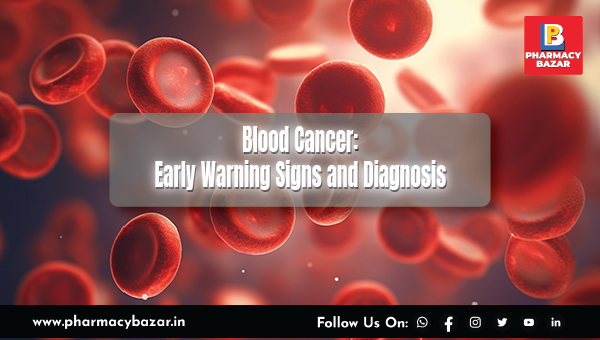BRAIN TUMOR
May 29, 2023
What is a Brain tumor?
Cancer is a term used to describe a group of diseases characterized by the uncontrolled growth and spread of abnormal cells in the body. These abnormal cells can invade and damage surrounding tissues and organs, leading to serious health problems.
There are many different types of cancer, each named after the part of the body where it originates. Brain Tumor: Brain and nervous system cancer: Cancers that start in the tissues of the brain and spinal cord.
Brain tumors are a type of cancer that affects the brain or the surrounding tissues. They occur when abnormal cells begin to grow and divide in an uncontrolled manner, forming a mass or tumor in the brain. Brain tumors can be either malignant (cancerous) or benign (non-cancerous).
While brain tumors can affect people of any age, they are more common in older adults. According to the American Brain Tumor Association, approximately 80,000 new cases of primary brain tumors are diagnosed in the United States each year. Primary brain tumors are those that originate in the brain, while secondary brain tumors are those that have spread to the brain from other parts of the body.
Symptoms of a brain tumor can vary depending on the location and size of the tumor. Some common symptoms include headaches, seizures, vision problems, memory loss, changes in mood or personality, difficulty speaking or understanding language, and weakness or numbness on one side of the body. These symptoms can be caused by many other conditions as well, so it is important to consult a healthcare professional for an accurate diagnosis.
Brain tumors can be detected through various diagnostic tests and procedures, including:
-
Magnetic resonance imaging (MRI): This is the most common imaging test used to detect brain tumors. It uses a powerful magnetic field and radio waves to create detailed images of the brain and detect abnormalities.
-
Computed tomography (CT) scan: This imaging test uses X-rays and a computer to create detailed images of the brain. It can detect abnormalities such as tumors and areas of bleeding in the brain.
-
Positron emission tomography (PET) scan: This imaging test uses a small amount of radioactive material to detect areas of abnormal activity in the brain, including tumors.
-
Biopsy: A biopsy involves removing a small sample of tissue from the brain to examine under a microscope for the presence of abnormal cells.
-
Neurological exam: A neurological exam can help detect signs of a brain tumor, such as changes in vision, hearing, balance, coordination, and reflexes.
It is important to seek medical attention if you experience any symptoms of a brain tumor, such as headaches, seizures, vision problems, memory loss, or weakness on one side of the body. Early detection and treatment of brain tumors can improve outcomes and reduce the risk of serious complications.
Treatment for brain tumors depends on several factors, including the type and location of the tumor, its size, and the patient's overall health. Options may include surgery, radiation therapy, chemotherapy, or a combination of these treatments. In some cases, the tumor may be too difficult to remove completely or may be located in a part of the brain that makes surgery risky. In these cases, treatment may focus on managing symptoms and slowing the growth of the tumor.
Living with a brain tumor can be challenging, both for the patient and their loved ones. It is important to have a strong support system and to work closely with healthcare professionals to manage symptoms and maintain a good quality of life. In addition, many resources are available to provide information and support, including the American Brain Tumor Association, the National Brain Tumor Society, and local support groups.
Prevention of brain tumors is not yet possible, but there are several things that individuals can do to reduce their risk of developing other types of cancer. These include maintaining a healthy diet and exercise routine, avoiding tobacco and excessive alcohol consumption, and protecting the head from injury by wearing a helmet during sports and other high-risk activities.
In conclusion, brain tumors are a serious and complex medical condition that can have a significant impact on a person's life. Early detection and treatment are crucial for the best possible outcomes, and patients and their loved ones should seek out reliable information and support to help them navigate the challenges of living with a brain tumor.
DISCLAIMER: This article is the property of Pharmacy Bazar and is protected by copyright laws. The information provided in this article is for educational and informational purposes only and is not intended to be a substitute for professional medical advice, diagnosis, or treatment. Always seek the advice of a qualified healthcare provider with any questions you may have regarding a medical condition. Never disregard professional medical advice or delay in seeking it because of something you have read in this article. The author and publisher of this article do not endorse any specific treatments, procedures, or products mentioned in this article.
Recent Post

Blood Cancer: Early Warning Signs and Diagnosis

Understanding Gallstones: Causes, Symptoms, and Treatment Options

Navigating Diabetes Medications: Benefits and Side Effects

Revolutionizing Cancer Treatment: How Unleashing T Cells' Energy Could Transform Immunotherapy

The Power of Lower Back Stretches: Benefits and Best Yoga Asanas for a Healthy Spine

8 Health Conditions That Could Be Due to Magnesium Deficiency

Unlocking Brain Health: How Lifestyle Choices Impact Cognitive Functions

When Speech Takes a Surprising Turn: Unraveling Foreign Accent Syndrome

The Optimal Time to Take Your Vitamin D Supplement: Insights and Best Practices

Beyond Diabetes: Unveiling the Hidden Health Risks of Insulin Resistance

